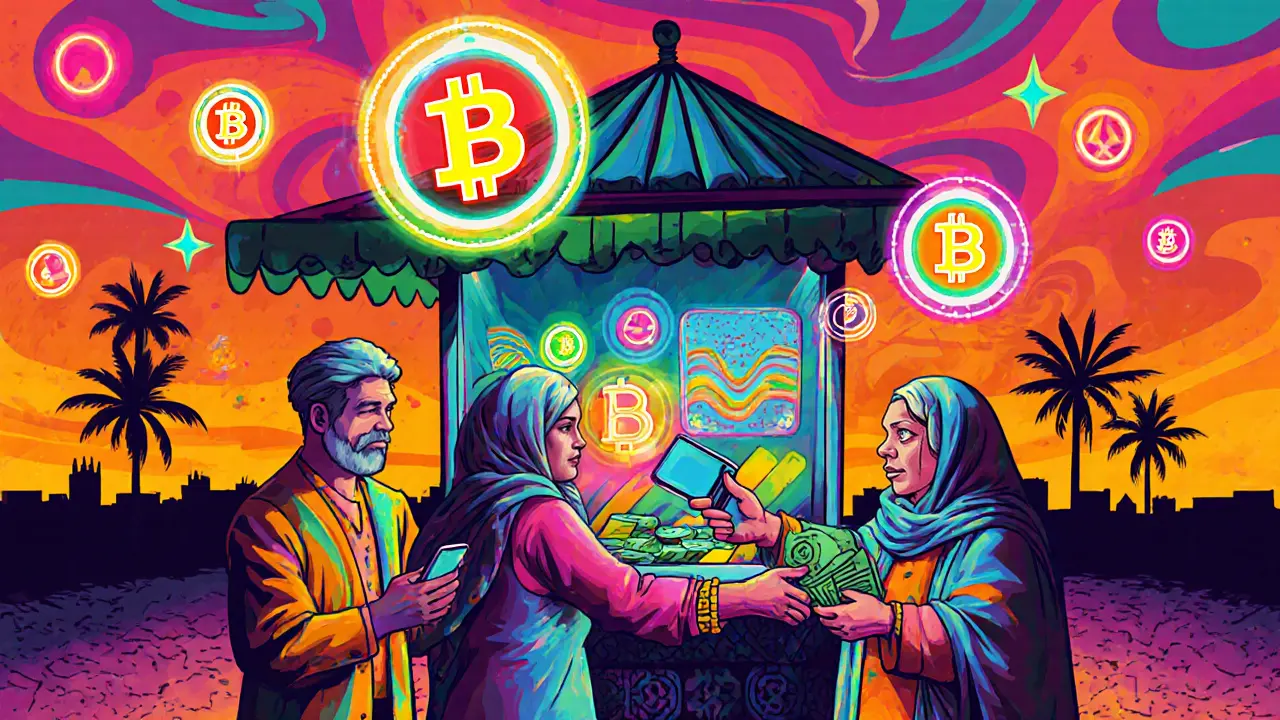Morocco Crypto Payments: What’s Allowed, Who Uses It, and Where to Start
When it comes to Morocco crypto payments, the use of cryptocurrency for goods, services, or peer-to-peer transfers within Morocco. Also known as digital currency transactions in Morocco, it exists in a legal gray zone—neither fully legal nor outright banned, but heavily restricted by central bank policy. Unlike Nigeria or Ghana, where crypto adoption has grown through mobile wallets and remittances, Morocco’s approach has been cautious, even restrictive. The Banque Centrale du Maroc (BCM) has repeatedly warned that crypto isn’t legal tender and prohibits financial institutions from processing crypto-related transactions. But that hasn’t stopped people from using it.
So how are Moroccans making crypto payments anyway? Many rely on peer-to-peer (P2P) platforms like LocalBitcoins or Paxful, where buyers and sellers trade directly using bank transfers or cash deposits. Others use crypto as a bridge to send money abroad—especially to Europe—where the official exchange rate for the Moroccan dirham makes it expensive to move funds through traditional channels. Crypto becomes a workaround. Crypto regulation Morocco, the official stance and enforcement actions taken by Moroccan authorities toward cryptocurrency use. Also known as Morocco cryptocurrency law, it’s based on a 2017 decree that bans all financial institutions from dealing in virtual assets. But enforcement is patchy, especially outside major cities like Casablanca and Rabat. There are no licensed crypto exchanges operating inside Morocco, and no official guidance on tax reporting for crypto gains. That’s why most users stay under the radar.
What about businesses? A few online retailers, especially in tech and fashion, quietly accept Bitcoin or USDT for payments, often through third-party gateways that convert crypto to fiat instantly. These aren’t advertised widely—they don’t want to draw attention. Meanwhile, students and freelancers use crypto to get paid for remote work, bypassing slow international wire services. crypto adoption Africa, the rate and methods by which African populations use cryptocurrency for daily transactions, remittances, or savings. Also known as African crypto usage, Morocco fits into a broader trend: young, tech-savvy populations turning to crypto when traditional systems fail them. It’s not about speculation—it’s about survival. When inflation hits and banks limit withdrawals, crypto becomes a tool, not a trend.
The future? It’s unclear. The government hasn’t signaled any shift toward legalization, but the rise of digital wallets and mobile money in neighboring countries is hard to ignore. If Morocco ever opens up, it won’t be through big banks—it’ll be through the people who’ve already figured out how to make it work. For now, if you’re in Morocco and want to use crypto payments, you’re doing it on your own terms. You’re not breaking the law, but you’re not protected by it either. That’s the reality.
Below, you’ll find real reviews and breakdowns of platforms and scams tied to crypto use in North Africa. Some are exchanges that claim to serve Morocco. Others are airdrops that lure users with fake promises. We’ve sorted through the noise so you don’t have to waste time—or money—on what doesn’t work.
How Moroccans Use Crypto for International Payments Despite the Ban
Despite a 2017 ban, Moroccans use crypto to send remittances and pay for international goods. With a new draft law to legalize crypto and a CBDC in development, the underground market is poised to go mainstream.
